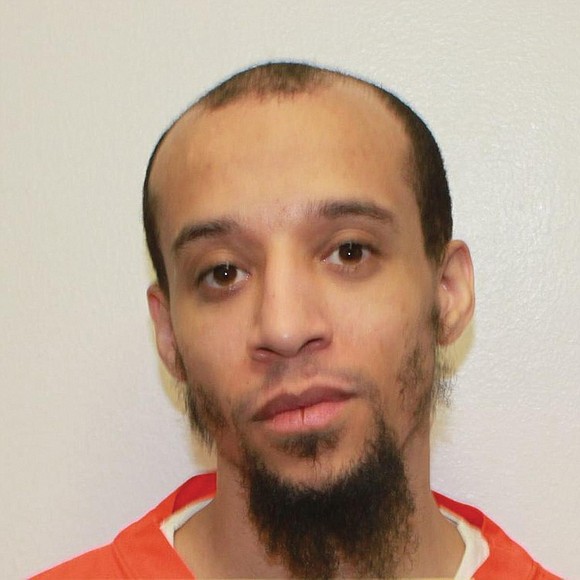Va. inmate wins religious freedom lawsuit
Jeremy M. Lazarus | 12/13/2019, 6 a.m.
For more than three years, Alfonza H. Greenhill has persisted in battling Virginia prison policies that blocked him from practicing the strict Sufi branch of Islam.
While he lost several preliminary rounds, the African-American inmate refused to give up and now has scored a signal victory for religious freedom for himself and other inmates when a federal appeals court in Richmond ruled that the U.S. Constitution and federal law is on his side.
A three-judge panel of the 4th U.S. Circuit Court of Appeals Friday struck down the policies that barred the Red Onion State Prison inmate from growing his beard to four inches – the length of his fist, as he claimed the Quran requires — and from viewing via TV a mandatory one-hour Friday service known as Jumu’ah that the Muslim faithful are commanded to watch if they cannot be present physically.
In a unanimous opinion written by Judge Paul V. Niemeyer, the appellate panel found that the state Department of Corrections policies impermissibly burdened the right of an inmate to practice his or her faith under the strict Religious Land Use and Institutionalized PersonsAct that Congress passed in 2000, as well as the First Amendment’s free exercise of religion clause.
The decision continued the appeals court’s general practice of eliminating such restrictions and was accompanied by encouragement from Judge Niemeyer that VDOC reconsider such restrictions as it might find “that providing robust support for inmates’ genuine religious exercise would actually enhance prison security and inmate rehabilitation.”
The decision is a win for Mr. Greenhill, a convict with a significant record who is serving 15 years for robbery and who started the religious freedom lawsuit about four years ago as a grievance and then filed an appeal of VDOC’s administrative rejection without legal help in federal district court in 2016.
Months before this ruling, his lawsuit resulted in a sweeping change to the department’s policy on beard length, according to Judge Niemeyer’s opinion. Under the new policy that was effective in July, inmates can grow their beards to any length unless they use the beard for illegal purposes, such as hiding their identity or smuggling contraband or the beard creates health issues for the inmate or others.
On the Jumu’ah service issue, the Virginia Department of Corrections argued that Mr. Greenhill lost the privilege of TV access as a disciplinary measure. Because of his behavior while at the Wise County prison, according to VDOC, he has been held essentially in the most restrictive confinement and remains there for refusing to participate in a program called Step-Down that allows inmates to regain privileges by modifying their behavior.
If he participated in the program and changed his behavior, he could be able to buy a personal TV from the commissary and be able to watch Jumu’ah services and other programs in his cell, state Solicitor General Toby J. Heytens argued on behalf of the VDOC.
To reward him by allowing him access to TV would undermine the Step-Down program that seeks to improve behavior and prepare inmates for a successful return to society after release, Mr. Heytens told the appeals court. The link between Step-Down and access to Jumu’ah passed muster with U.S. District Court Judge James P. Jones, who earlier upheld VDOC’s policy of withholding TV access to the prayer service in September 2018 in throwing out Mr. Greenhill’s case, leading to the appeal.
However, Judge Niemeyer found that argument unpersuasive, despite finding that Step-Down “appears to be a sophisticated, well-conceived program to better inmates’ behavior and their confinement as well as to improve safety and the overall operation of the prison.”
But whatever the quality of the program, “holding inmates’ religious exercise hostage to incentivize (inmates’) participation ... is impermissible under RLUIPA,” Judge Niemeyer wrote. “Access to bona fide religious exercise is not a privilege to be dangled as an incentive to improve inmate conduct, and placing such religious exercise in the category of privilege to be earned is fundamentally inconsistent with the right to religious exercise that RLUIPA guarantees to prisoners.”
Judge Niemeyer was joined in the opinion by appellate Judge G. Steven Agee and U.S. District Court Judge Thomas S. Kleeh of West Virginia in agreeing with Mr. Greenhill and his appellate attorney, Daniel M. Greenfield of Northwestern University, that the VDOC policy could not withstand First Amendment scrutiny.
Judge Niemeyer noted that Mr. Greenhill had offered three restrictive methods by which VDOC could accommodate his TV viewing of Jumu’ah and not allow him to see anything else in returning the case to the lower court to see if VDOC could provide “any other reasons to justify” keeping Mr. Greenhill from viewing the service.
Unless the department can show that safety and security specifically would be undermined by each of the proposals Mr. Greenhill has advanced, including having a TV placed in his cell only during Jumu’ah, VDOC would need to offer at least one of the options to him, Judge Niemeyer indicated.
On the beard issue, Judge Niemeyer also found that past VDOC policies restricting beard lengths to less than an inch on prisoners also violated RLUIPA for those whose faith requires longer beards, but noted that the department’s decision to revise the policy while the case was pending appears to have cured the defect.







